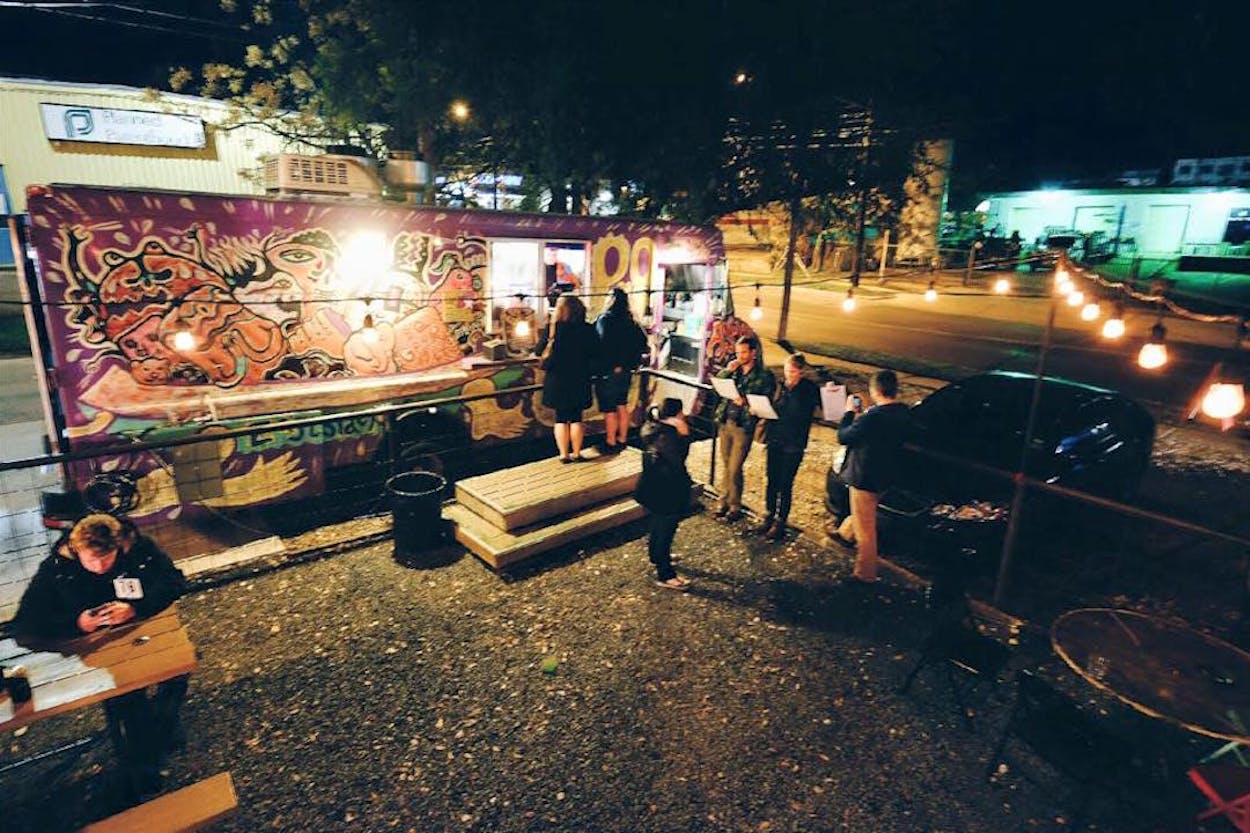The Americans with Disabilities Act has been the law of the land since 1990. It was signed by President Bush — the first one — and carried a number of provisions ensuring that disabled Americans would have access to equal opportunities. One guarantee in the law was public accommodations, which required businesses open to the public to be made accessible to disabled customers. But that provision led to a spate of lawsuits in Texas this week, with 32 businesses — including 14 in Austin with a very specific clientele — on the receiving end of the anti-discrimination suits. As the Austin American-Statesman explains:
The Austin businesses named in the suit include Rainey Street bars Icenhauer’s and Blackheart, and Whisler’s in East Austin; restaurants Curra’s Grill and Dan’s Hamburgers; tattoo parlor All Saints Tattoo; for-profit plasma donation center BPL Plasma; transportation services Austin Overtures Corporation and U.S. Coachways; and men’s clothing store Collective Status.
Also included are three owners of food truck court property on Rainey and Sixth streets that the lawsuits say are inaccessible to those with mobility disabilities: Fremont Holdings, MOQUI and La Corsha Hospitality Partners. Also named is LAZ Parking, which runs a parking lot north of Rainey Street.
Though there are others in Fredericksburg, Dallas, and various parts of the state, most of the lawsuits involve Austin businesses. And a number of the capital’s businesses targeted by the suit occupy a very specific niche in the city’s culture. Namely, they’re of the Rainey Street/East Austin/food truck persuasion — what we can, without intending an insult people who bristle at the word, fairly characterize as Austin’s “hipster” experience.
That culture in Austin gets discussed a lot, especially in regards to the city’s ongoing gentrification debate. When you knock down a piñata shop and put in a cat cafe, for example, or replace a neighborhood laundromat with a restaurant where bacon, eggs, and toast cost $12, or name a PR firm that caters to those businesses after a song about lynching, you’re by default excluding people from the culture.
But the exclusivity in the Austin culture reaches beyond racial or economic barriers. Sometimes, the barriers are literal, and that’s something that we don’t talk about much in the context of who Austin’s businesses cater to. When East Side King opts for concrete stairs instead of a ramp, as the lawsuit alleges, or when Whisler’s only accessible entrance is through an alley and its patio isn’t wheelchair friendly, the owners of those businesses are choosing (even if only by omission) not to consider people with disabilities as their customers.
It’s unlikely that most of these lawsuits are the result of active, mean-spirited discrimination. When Blackheart Bar on Rainey Street didn’t put a door on its accessible men’s room stall, its owners most likely made that decision because doing so would be a challenge in a tight space. And when food truck operators use stairs instead of ramps, it’s because stairs take up less real estate. But it’s also true that the businesses weren’t exactly blindsided by the 25-year-old regulations, or that the specific issues surrounding accessibility in some of these businesses haven’t been brought to their attention before. For example, in recent months, customers with disabilities have demonstrated outside of at least some of the businesses named in the suit to address the lack of access.
So the choices, however they’re intended, are still being made by business owners who are demonstrating their priorities. Those priorities don’t seem to include disabled customers — and, by federal law, they need to.








